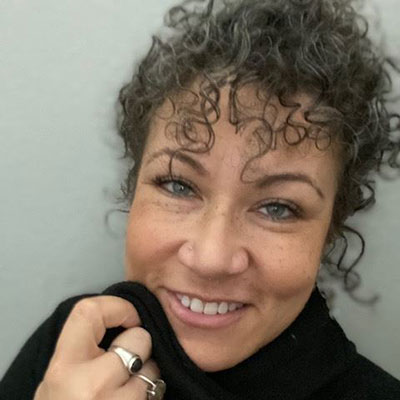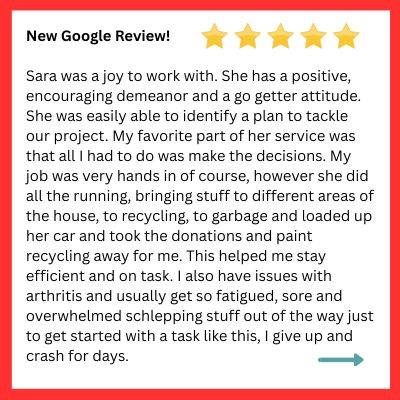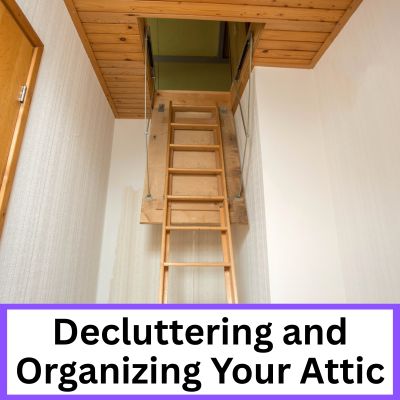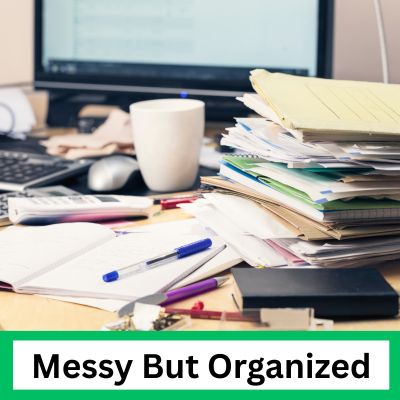Advice From A Death Doula

On Tuesday, I got to attend an end of life preparedness presentation by Lashanna Williams of A Sacred Passing. Lashanna is an end-of-life educator, Death Doula, and massage therapist. She talked about what she does as a death doula, which is to help people organize their affairs before they die. Not only is it important to have all your documents legally completed before the end of life, but there are many nuanced considerations to decide so that someone can depart in a loving and supportive way.
I got to discuss this topic prior to the presentation with a few other professional organizers. We all knew that it was important to have an up-to-date will, a power of attorney, a medical power-of-attorney, and beneficiary forms completed. Some of us had these documents completed, and some didn’t. We talked about access to passwords, social media accounts, and including loved ones on bank accounts. One of the organizers in our group had actually been the power of attorney for one of her organizing clients. The client didn’t have any family, and the bond that they created through their working relationship proved that this organizer was a loving and trustworthy individual. If you’ve ever seen the horrifying Netflix movie, “I Care A Lot”, you know how scary it can be when guardianship goes to a stranger. The premise of the story is that a fraudulent “guardian” had been appointed through an emergency court hearing. This had been orchestrated by a doctor who was in cahoots with the [illegal] guardian. The elderly person who had been taken advantage of was forbidden to talk to her family, and put on heavy doses of medication, while the guardian stole millions of dollars from her. Lashanna let us know that this type of illegal activity actually happens! It had actually happened to a family member of another professional organizer in our group too. This is one of many reasons to make sure your documentation is in order, and in a place that can easily be located. Another one of the organizers let us know that she had been tasked to help a client with hoarding behavior locate her birth certificate, will, and other important legal papers. She was able to finally find them, but they had been buried under 10’ of clutter.
Lashanna taught us about how and why death can be such a hard topic to discuss. Not only can it be very emotional for people, but capitalism and gatekeeping keep the funeral industry alive. Laws have been created to say who can tend to the dead. This perpetuates the division between life and death, and keeps the taboo about death alive. Since the process of death is almost always removed from the home, it creates more distance between the person who is dying and their loved ones. It’s never too early to start having conversations about plans for death.
Here are some questions to talk about:
- What kind of healthcare do you want?
- Who is allowed to care for you, and in what ways? Who’s allowed to visit? Who’s allowed to touch you, and how? Who’s allowed to bathe you? Lashanna is an advocate for healthcare to be consent based, rather than entitlement based. So much touch is investigatory, such as “does this hurt?”, “does this move”, and checking temperature or pulse. In addition to this, touch should also be loving, caring, and soothing, like massage and other types of healing touch.
- What do you want to have happen to your body once you die? Do you want to be buried, cremated, aquamated, composted, or something else? Do you want your body to be donated to science?
- What do you want to have happen with your finances?
- Do you want to have a funeral? Who would you like to have your ashes?
- What rituals would you like to be practiced as you make your transition?
- What types of legacy do you want to leave behind?
- What are some good grief resources for you and your family?
- Is all your paperwork filled out? Where is it?
With permission from Lashanna, I am including resources from the document she sent us. The document includes information about what to do when someone dies, locating the important paperwork, practical steps, who to notify of death, and additional resources. You can download the full document here: After-a-Death-Occurs-A-Checklist
Here’s a small portion of the information from this valuable document:
Find the deceased’s important papers and documents as soon as possible. If necessary, ask close family, friends, or the deceased’s doctor or lawyer if they know where these important papers can be found, and the location of a bank safety deposit box, if any.
In Washington State safety deposit boxes of the deceased are not sealed. Anyone who has legal access has the right to open the safety deposit box. (See the For More Information section at the end of this document to learn what to do if there is no one available with access to the safety deposit box.)
The Will
If there is a Will, notify the Personal Representative named in the Will (and the Trustee, if named in a trust) right away. The Personal Representative is responsible for taking care of the deceased’s estate and for following the terms of the Will, while the Trustee is responsible for managing the trust. Sometimes the Personal Representative is called the “Executor” or “Executrix”.
In Washington, a valid and signed Will must be filed with the Superior Court, usually in the deceased’s county of residence, within 30 days of the death. This is an extremely important step to complete if there is a Will. If there is a Will and/or trust, give all of the important papers to the Personal Representative and/or Trustee as soon as possible. If there is no Will, the court will administer the estate according to Washington State law. (FYI, If you’re ready to create your will, or want to update your existing will, I recommend contacting Brent Williams-Ruth.)
In addition to the will, here are additional documents you’ll need to have:
Deeds and Titles
- Property deeds (including any recent appraisals)
- Mortgage documents (and promissory/loan notes)
- Vehicle titles and registrations (car, boat, RV, )
- Membership certificates
Insurance Policies
- Life insurance (including premium payment records)
- Accidental life insurance
- Veterans’ insurance
- Employers or pension insurance
- Funeral insurance (or other death-related benefit plans)
- Mortgage and/or credit insurance
- Credit card insurance (for balances)
- Health insurance (including Medicare or Medicaid, “Medigap” insurance, private health insurance, dental, and long term care insurance)
- Property insurance (homeowners/renters insurance, car insurance, )
- Workers’ compensation insurance (and payment records)
Financial Accounts
Including most recent statements for all accounts and the list of Beneficiaries, if any.
- Bank accounts – checking, savings, CD’s, etc.
- Investment/brokerage accounts, IRA’s, 401-K’s,
- Stocks and bonds
- Annuities
- Credit and debit card accounts
- List of safety deposit boxes, where to find keys, and names of authorized users
Other Financial Records
- Survivor annuity benefit papers
- Employer/retirement benefit (pension) plans, pension/profit-sharing plans,
- Veterans’ benefit records
- Disability payment documents (State, Veterans’, )
- Income tax returns (from the current year)
- Gift tax returns (for all years)
- Property tax records and statements
- Business interests held, financial statements and agreements, contracts,
- Loan papers
- Other – investment records, etc.
Legal Papers
- Court documents for adoptions and divorce (including any property settlement agreements, name changes, prenuptial agreements, )
- Military service papers, including discharge records
- Will and/or trusts
- Deceased’s Final Instructions, Disposition Authorization, and/or Designated Agent forms (sometimes included in an advance directive such as a Durable Power of Attorney for Health Care)
- Pre-paid funeral contracts
- Organ/tissue donation record
- Social Security card (or number)
- Birth certificates (of all family members)
- Marriage license or certificate
- Community property agreements
- Domestic Partnership Registration
- Driver’s license
- Passport, citizenship, immigration and/or alien registration papers
Personal Information
- Names and contact information of closest family and friends
- Names and contact information of all lawyers, accountants, doctors,
- Family Tree, if available (especially if there is no Will).
For additional information, you can contact Lashanna Williams at lashanna@asacredpassing.org or 206.494.0023. Her website is ASacredPassing.org.
She also recommends Death Resource Center as another great site she contributes to. Please remember to download the full document here: After-a-Death-Occurs-A-Checklist
Do you have your paperwork in order? Send me a message, I’d love to hear about it!

By Jean Prominski, Certified Professional Organizer
Download my free 5 week journal The Seattle Sparkle Method to Get Organized and Stay Organized
Sign up for my free 4 Day Color to Declutter Challenge.
Become part of a like-minded community by joining my Facebook Group, Declutter and Organize with Seattle Sparkle.
Ready to book a consultation? Complete this form.
For artwork to energize your home, order through jeanprominski.com or on Etsy.




